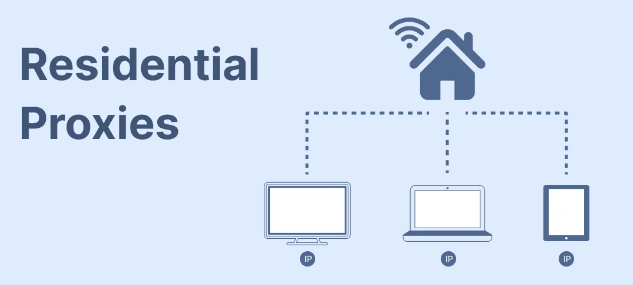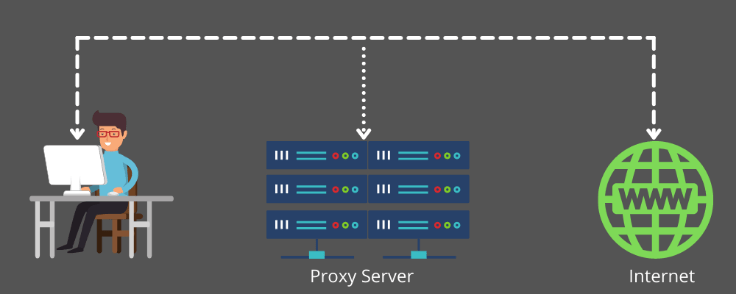Difference Between Residential and Datacenter Proxies
Residential proxies function similarly to datacenter proxies in that they conceal your real IP address by routing your Internet traffic and requests through an intermediary server. Read here to know the basic differences.
Using residential and data center proxy servers, you can anonymously scrape data from the web and hide your IP address. However, which proxy is the best fit for you?
Residential and data center proxies conceal your true IP address when browsing the internet. This is useful if you can’t access a specific website, are trying to access geo-restricted content like Netflix or YouTube, or are looking for the cheapest airline tickets.
How do residential and data center proxies work, and how do they differ?
So, how does this work? Like a digital fingerprint, your IP address can be used to track you online. Using a residential IP proxy, you can hide your accurate IP address behind a proxy server registered to a residential address other than your own. On the other hand, a data center proxy IP address can be associated with a specific company or data center.
Which is the better option for you to use?
Let’s start with data center proxies, which account for the vast majority of proxies. When masking your IP address, these proxies are entirely independent of your internet connection and Internet Service Provider (ISP). This way, you can easily conceal your IP address and avoid being associated with any specific location.
Using data center proxies to mask your IP address
Cookies are files that websites save in your browser to track your IP address. Your IP address is the most valuable digital trail you leave behind whenever you go online; it can reveal the precise location from which you accessed a website. Both websites and search engines can geo-block content based on where you are in the world.
If you need online anonymity or want to access content from another country, you can use a paid data center proxy service to help mask your IP address. As websites become more aware of this, data center proxies are frequently blocked. Residential proxies are a viable option if you’re tired of being flagged while using data center proxies.
What is the purpose of using residential proxies?
Residential proxies assign IP addresses to actual residential addresses, making them nearly impossible to block. You can use this to access geo-restricted content, conceal your IP address, or scrape and collect data from various websites. Purchase residential proxies from reputable vendors; avoid free proxies at all costs.
Are home proxies more effective than data center proxies?
Yes, and there are several reasons why rotating residential proxies are preferable to data center proxies.
- Residential proxy IP addresses are more legitimate. Security systems typically give residential IPs more credit because they can only be assigned to legitimate residential addresses. Once a website detects that you are using a proxy connection, it may block your connection to the data center. Because data center IP addresses are easier to obtain than residential IP addresses, most data center users will conceal their IP addresses for malicious purposes. As a result, these IP addresses are more likely to be blacklisted.
- A broader range of connection points – Rotating residential proxies provide a range of locations from which to connect, making them ideal for circumventing geographic restrictions.
Which is best: Residential or data center proxies?
The short answer is that data center proxies are not as effective as residential proxies at hiding your sneaker bot. Datacenter proxy speed and reliability are adequate if you only have one or two accounts. However, if you have many accounts, they will become slower and more susceptible to subnet bans.
You’ll need quick proxies and separate IP addresses for each account to buy multiple pairs of sneakers using a sneaker bot (such as the Nike, Adidas, or Yeezy bots). However, if your bot acts too quickly, adding items to the cart and proceeding to the checkout, it will be blocked. Properly configuring your shoe bot is critical because proxy speed is not the most crucial factor in obtaining sneakers. Residential proxies outperform data center proxy IPs in this regard, making their actions appear natural.
The following are the advantages and disadvantages of residential and data center sneakers proxy services:
Residential proxies are superior because they are distinct. Data center proxies face severe subnet bans if only one IP address is discovered.
Speed: Data center proxies are typically faster, but this isn’t the most critical factor because moving too quickly risks being blocked. You will always experience the fastest speed if you choose a location close to your intended target.
Shared proxies are less expensive because more IP addresses can be used concurrently. You will pay a little more if you purchase dedicated IPs (residential or data centers). Remember that most dedicated proxies are not guaranteed and may have previously been used. For the best value, we recommend using shared residential proxies.
Conclusion
Residential proxies are more uncommon when compared to data center proxies.
For international releases, global residential IP networks are preferable to data center IPs because you can select US, European, or Japanese proxies and purchase goods internationally. Datacenter proxies would only function in the country where the data center’s servers are located.
ad





Comments are closed.